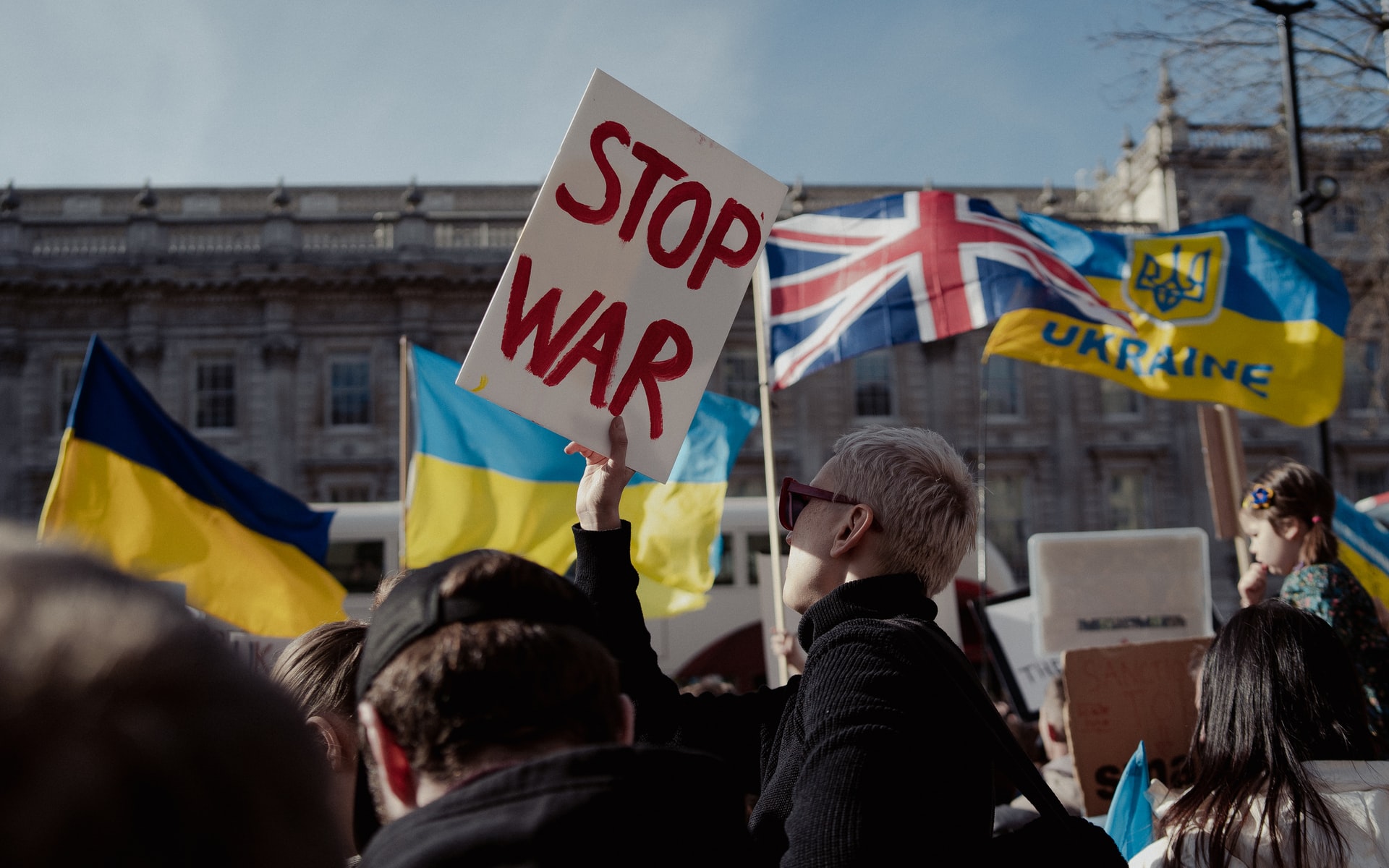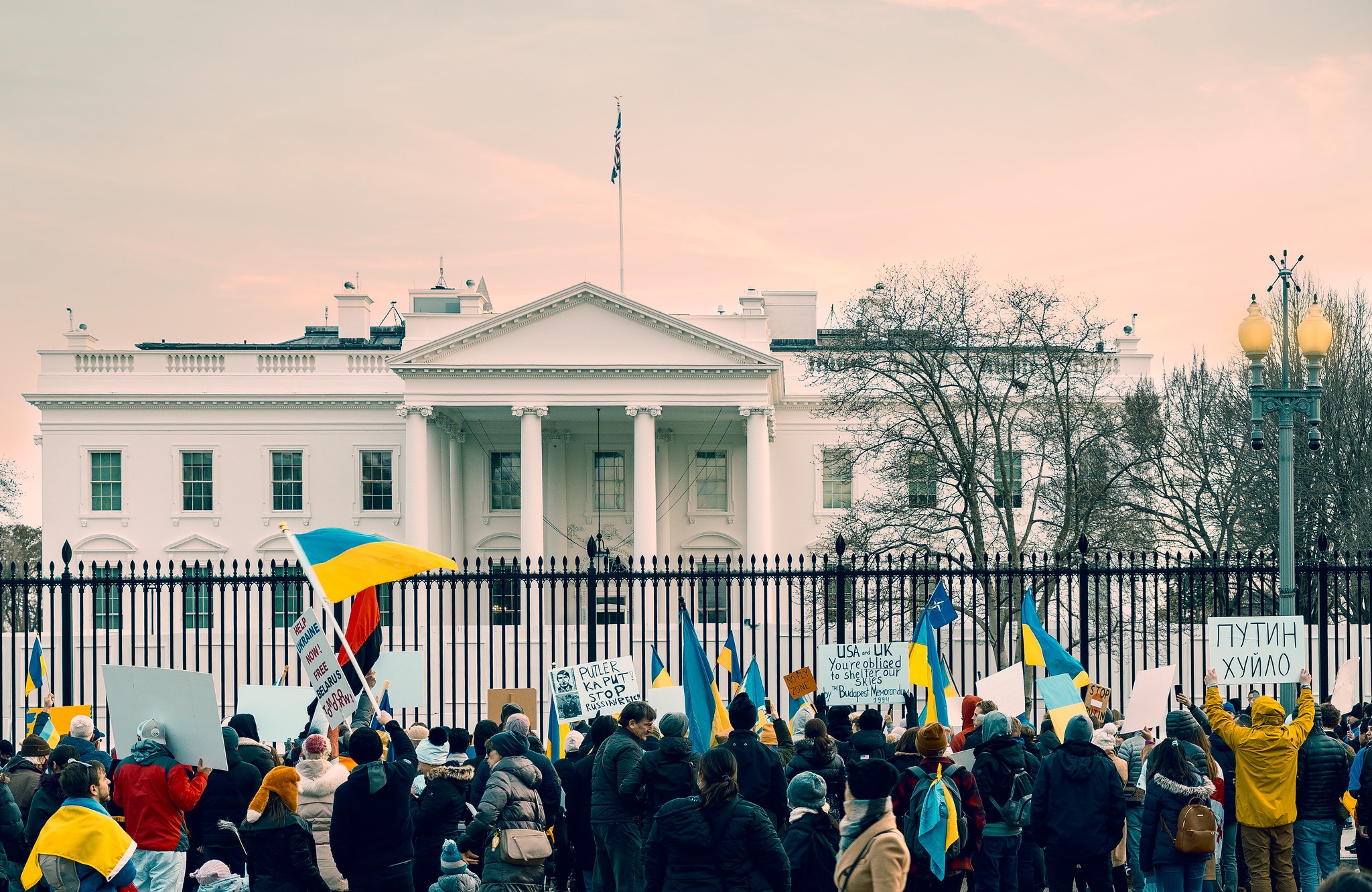“Do you hear the people sing?”


The conservative press, and no few mainstream outlets, took umbrage Tuesday when President Joe Biden spent so much time talking about the invasion of the Ukraine during his STOU speech.
“Domestic challenges are what Americans really care about,” they grumbled in near lockstep.
Domestic challenges abound, of course. There’s been a pandemic on, after all. Biden’s first State of the Union speech made it clear that he understands why so many are worried about inflation, higher energy costs, and the rising price of gas, groceries and goods.
The White House is also worried about these things and Joe Biden comes from a blue-collar, working-class background.
No one can predict the future, but there is an excellent reason the President spent so much time discussing the Ukraine crisis. The conflict is likely to impact the very kitchen table issues Americans care about over the next year in particular, especially if it spreads.
That the conflict might spread, inspiring China to invade Taiwan and North Korea to move on South Korea in the confusion, is the second biggest concern of world leaders at the moment. The threat that Russian President Vladimir Putin might use nuclear weapons is the first.
Foreign policy experts and elected official on three continents are right to be concerned.
Russia has been slow-scale invading Ukraine for several years now, undermining its government and institutions with information warfare, hacking critical data systems.
Putin’s political enemies, however far they flee from Moscow, keep dying mysteriously of poison- often rare and exotic poisons, some radioactive. Administered via a prick with the pointed end of a special umbrella, added to tea, a substance thrown into the victim’s face; the resultant painful and lingering deaths are meant to send a message.
This is all thought to be a calling card of the Putin Administration, but as in the case of the hacking attacks- which often leave almost no evidence- allegations aren’t proof. Putin hasn’t been tried in a court of international law, though that would certainly be a happy ending to this crisis.
Russia forcibly annexed the Crimea in 2014. By the time Russian tanks began pouring over the Ukrainian border last week, 14,000 Ukrainians had already been killed in the ongoing conflict.
A very similar situation has been unfolding in Taiwan. The Chinese Communist Party has been engaging in the same strategies- information warfare, economic sabotage, hacking, violating airspace, amassing troops as if preparing a full-scale military invasion.
North Korea does exactly the same thing to South Korea.
The purpose of all these underhanded and clandestine activities is to weaken an opponent’s willingness and ability to fight.
The Russian invasion of Ukraine by Vladimir Putin was preceded by speeches openly declaring his intention to restore the Soviet Union to its former glory. It was also preceded by saber rattling and a concentration of military forces near strategic points under the dubious auspices of “war games” and “training.”
Chinese leader Xi Jinping has been making similar speeches in recent years, making his intentions to annex Taiwan very clear.
Finally, Republicans and Democrats have found something they can agree on for the first time since 9/11. Unfortunately, just like last time, the unifying factor is war and rumors of war. The consensus, “Putin Must Be Stopped,” falls just short of a full-throated cry for a military intervention by U.S. forces.
The clamor for the U.S. to send military aid is circulating in the wings for now, but it isn’t hard to imagine the hewn cry should Putin’s forces start committing war crimes.
Since war is itself a terrible crime, and the invasion is being televised by a million citizen journalists with cell phones and social media, the prospect of war crimes isn’t at all unlikely.
The longer this conflict drags on, the more pressure is on Vladimir Putin for Russia’s superior forces to prevail. While the commentariat argues whether Russia is winning or losing, and some warn not to be too optimistic, Putin is under immense internal pressure from those with whom he shares power.
Everyone answers to someone. Putin’s greatest threat isn’t the U.S., or even the Ukraine; it is being usurped by someone much closer to home.
Ukrainian President Volodymyr Zelensky, for his part, has become the kind of folk hero John Cena aspires to be on the big screen. “I don’t need a ride, I need weapons,” sounds like something Arnold Schwarzenegger might have said in his action movie heyday.
Zelensky’s heroics and commitment to fighting for his country have inspired the world to hope desperately for his survival.
The feeling that Zelensky’s survival, and that of Ukrainian independence, hangs by a thread is of no comfort to the world, even if he does manage to make it into the history books as the second coming of George Washington.
We are afraid for Zelensky, as well we should be. George Washington and all his fellow conspirators against the crown accomplished all they did while under much worse than a death sentence.
Washington faced a long, drawn-out pubic torture and execution so brutal and foul, even his body wouldn’t have been allowed to rest in peace.
If Zelensky is captured by Russian forces, he is likely to face a similar, if less medieval, execution and martyrdom.
The news that peace talks between the two nations for a ceasefire have again failed was met with sadness and resignation by the international community today. French President Emmanuel Macron’s ominous warning after a phone call with Putin that the worst is yet to come for Ukraine was even less welcome.
Still, we can’t help but hope. Other revolutionaries and nations have faced long odds and triumphed anyway. It has happened before.
People want to be free to govern themselves and live their lives in peace as they see fit; to practice their faith openly, marry who they want, and earn an honest living.
They don’t mind taxation- as long as they have representation- and they will willingly submit to laws so long as they have a say in making those laws, however small their share of responsibility.
The Ukraine reminds us that these fundamental human rights are worth fighting for, and that the people will fight to defend them if they are forced to do so, whatever the odds.
George Washington ultimately triumphed over a much larger and more sophisticated military force for a number of reasons. The home field advantage and outside assistance from France helped a great deal. Few, if any, nations have achieved independence without the aid of a foreign nation.
But Washington had something England’s king did not in colonial America: The consent of the governed.
President Zelensky has it; Vladimir Putin does not. Whatever happens, Putin is in for a sharp struggle in Ukraine. Ukrainian forces obviously do not intend to go quietly into that good night under the auspices of Moscow. Ukrainian distrust of Russian governance runs deep and hot.
The history books are full of moments when, improbably, the power elite fail and the people win a great victory. A corrupt government goes too far, a people rises up to fight tyranny and oppression; we love this story.
Let it be a lesson to oppressive governments everywhere to never underestimate the power of the people.
(contributing writer, Brooke Bell)